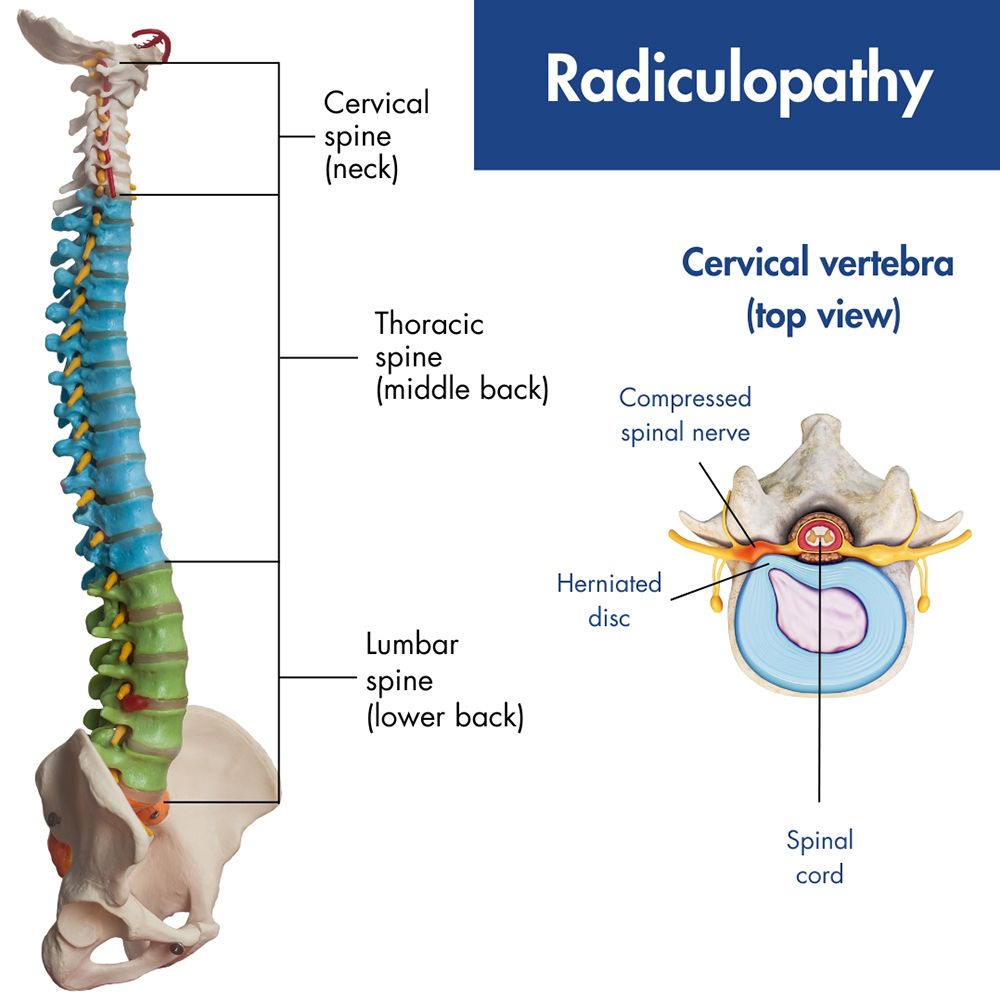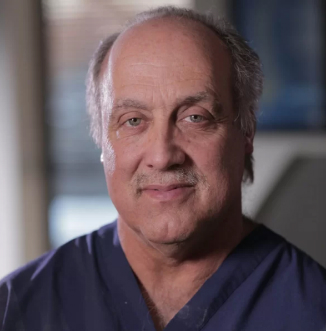We’re pleased to announce that Pain Physicians of Wisconsin is now Pro Spine Pain.
We’re pleased to announce that Pain Physicians of Wisconsin is now Pro Spine Pain.
 Radiculopathy is a spinal condition where injury, illness, or general degeneration causes nerve compression within the spinal column. This pinched nerve leads to inflammation, resulting in pain and numbness in the back and other affected areas of the body. While pinched nerve pain can be debilitating, it is a manageable condition.
Radiculopathy is a spinal condition where injury, illness, or general degeneration causes nerve compression within the spinal column. This pinched nerve leads to inflammation, resulting in pain and numbness in the back and other affected areas of the body. While pinched nerve pain can be debilitating, it is a manageable condition.
A pinched nerve can manifest anywhere along your spine, from the neck (cervical radiculopathy) to the lower back (lumbar radiculopathy). Thoracic radiculopathy, or a pinched nerve in the mid-back, is a less common location, but it can still cause considerable discomfort. Symptoms may include back pain, along with radiating pain and numbness. Don’t endure unnecessary suffering. Reach out to the top spine doctors in Wisconsin at Pro Spine & Pain for expert care. They specialize in treating the pain caused by lumbar radiculopathy without surgery. Schedule a consultation today to start your journey towards relief.
If you experience discomfort, stiffness, or pain from a pinched spinal nerve, seek assistance from the expert spine specialists at Pro Spine & Pain in Wisconsin. The doctors at this spine and pain center offer comprehensive diagnosis and employ advanced procedures or referrals to treat all your back problems, including lumbar and thoracic or lumbar radiculopathy surgery or other treatment.
A compressed nerve can occur anywhere along your spine, and your doctor will give you a physical exam to determine the source of your pain. The diagnosis may also use diagnostic imaging and other investigations to decide on the most appropriate treatment for your particular case.
Based on where your pain originates, doctors classify your pinched nerve as one of three types:
Pro Spine & Pain has Wisconsin offices in Kenosha, Waukesha, Layton, Franklin, and Madison. Our renowned pain management specialists use advanced medical equipment to provide you with the expert care you need to diagnose and provide cervical, thoracic, and lumbar radiculopathy treatment.
Your symptoms can vary depending on the type and location of the compressed nerve.
Common symptoms of radiculopathy to watch for include:
If you experience any of these symptoms or persistent back pain, it’s essential to seek evaluation from an experienced professional. The board-certified spine and pain specialists at Pro Spine & Pain in Wisconsin possess the expertise and technology needed to accurately diagnose and treat a wide range of spinal conditions.
Any structural change or condition in the spine can lead to compression of the spinal nerve roots.
Common causes of pinched nerve symptoms include:
Early diagnosis of your symptoms is crucial for the health of your spine. The spine and pain specialists at Pro Spine & Pain will accurately identify and diagnose all underlying spinal conditions to effectively treat your radiculopathy.
While anyone can experience a compressed spinal nerve, certain individuals may be more susceptible to this condition.
The risk factors for radiculopathy include:
If you are at risk for radiculopathy, seek guidance from the doctors at our Wisconsin spine pain center. You may require lumbar or thoracic radiculopathy treatment. Wisconsin’s leading pain specialists offer comprehensive answers to all your questions regarding the causes and symptoms of your spinal conditions.
Our doctor will evaluate the type of radiculopathy you’re experiencing before determining the most suitable treatment for you.
Treatment options for radiculopathy lumbar region treatment and other areas include:
In addition to these treatments, you can reduce your risk of radiculopathy by maintaining a healthy weight, exercising regularly, and adopting healthier lifting and posture habits. For the best thoracic or lumbar radiculopathy treatment or any spinal pain care, contact Pro Spine & Pain today.

Thomas Stauss, MD, completed both his undergraduate and medical studies at the esteemed University of Wisconsin in Madison. Dr. Stauss values having access to a wide array of cutting-edge treatment options, ensuring effective relief for his patients' discomfort and a significant enhancement in their quality of life. More specifically, he specializes in utilizing implanted devices to manage chronic pain. Dr. Stauss’s primary objective is to uphold the dignity of each patient while delivering ethical and professional services.
More about Dr. Stauss